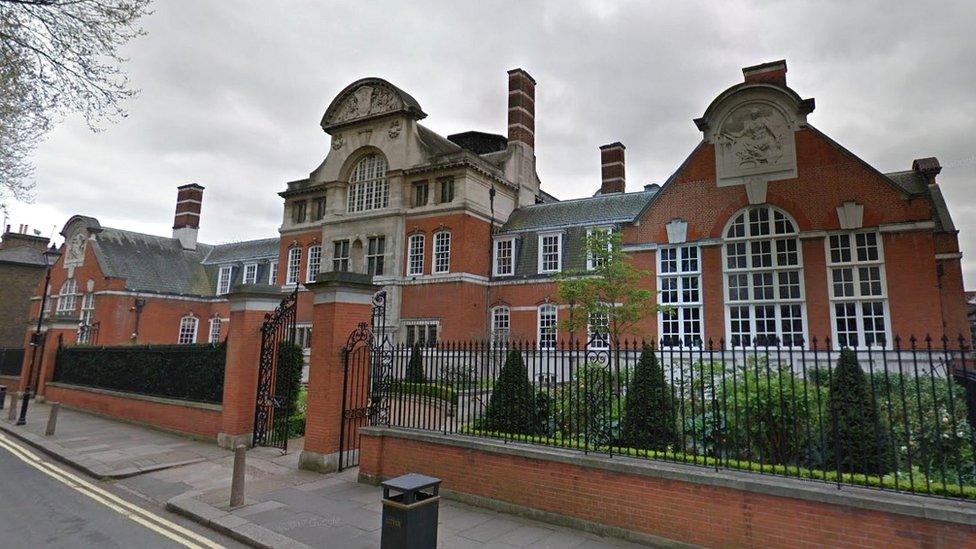I want girls to be proud of being girls, says Ofsted chief inspector
- Published

St Paul's Girls' School is a fee-paying institution based in west London
It is "sad if girls can't be proud of being girls", England's chief inspector of schools has said, after a London school said it was renaming the role of head girl.
Amanda Spielman said she wanted to ensure that the "power" of being a woman "doesn't get lost".
St Paul's Girls' School said it would rename the role to "head of school" in part because of "binary connotations".
Staff told the Times, external it sent a damaging message.
Asked about the report on BBC Radio 4's Woman Hour, Ms Spielman said: "I just hope that St Paul's Girls' School and every other girls' school can carry on encouraging most of their girls - of course there will always be a few exploring their sexuality, exploring gender - but let's hope that girls can carry on being proud of being girls."
Ofsted's chief inspector added: "I'd just like to make sure that the power and strength of girls and being a woman - growing into being a woman - doesn't get lost in our society, it's so important ."
Ms Spielman, who attended the sixth form at St Paul's, said "heated" discussions about sex and gender were "probably making it a bit harder for young people to grow up".
Asked whether there was a generational gap, she said young people tended to be "the most radical".
"Who knows whether there is a genuine intergenerational change, or whether it's just another manifestation of that strength and intensity that it's absolutely right that we want young people to have, that will moderate with time. I simply don't know," she said.
She also said it was important to "talk about children in natural language", after the Daily Telegraph, external reported that LGBT group Stonewall wanted teachers to start using the term "learners" rather than "boys" and "girls".
Ms Spielman said the term "can make it easy to forget that there are real-life children and young people underneath".
"The more we shift away from the kinds of words that mothers, fathers, children, teachers naturally use the more remote things get and the harder it is for people to think about them," she said.
St Paul's said there was "no intention of diminishing the role we play in educating and empowering young women to be proud of who they are and the equal of anyone".
In a statement, the school said students had raised questions about the name "head girl" this year. They wanted it to be more inclusive and felt the term "girls" was not appropriate for 17- and 18-year-old students, it said.
It added that head girls were originally called "heads of the school" so "we are acting fully in line with our ethos,"
St Paul's said there was "no intention to change the name of the school or seek to erase the word 'girls' or undermine its value in any way".

POSE: The ground-breaking drama shining a light on 1980s New York ball culture
"I WAS JUST FALLING FURTHER AND FURTHER BEHIND": Heartfelt stories from people across the UK who struggle to read and write
